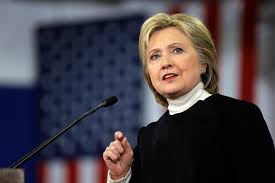Hillary Clinton just couldn’t hold onto the Obama coalition. And that proved to be a large part of her undoing.
African-American, Latino and younger voters failed to show up at the polls in sufficient numbers Tuesday to propel Clinton into the White House.
Clinton conceded the race after 2 a.m. ET. Before polls closed her campaign had been confident of victory. In the end, however, she lost even some states thought to be safely in her column, like Wisconsin. She trailed in others, like Pennsylvania and Michigan.
While she won the key demographic groups her campaign targeted, she underperformed President Obama across the board, even among women, according to exit poll data.
A slightly larger share of black and Latino voters cast ballots for Trump than supported Mitt Romney in 2012, despite Trump’s disparaging remarks on African-Americans, Mexicans and undocumented immigrants.
President Barack Obama, who captured the presidency with the help of the African-American and Latino communities, issued several personal pleas to black voters to back Clinton in recent weeks.
“If we let this thing slip and I’ve got a situation where my last two months in office are preparing for a transition to Donald Trump, whose staff people have said that their primary agenda is to have him in the first couple of weeks sitting in the Oval Office and reverse every single thing that we’ve done,” Obama said last week during an interview on a syndicated radio program.
But not enough African-Americans, along with Latinos, heeded the call.
Some 88% of African-American voters supported Clinton, versus 8% for Donald Trump, as of very early Wednesday morning. While that’s a large margin, it’s not as big as Obama’s victory over Mitt Romney in 2012. Obama locked up 93% of the black vote to Romney’s 7%.
Some 12% of the electorate was African-American this year, compared to 13% four years ago. That’s a key drop, especially when paired with a smaller-than-expected growth in Latino votes.
This lowered turnout happened even after Trump repeatedly made sweeping comments about how black communitieswere in the worst shape ever. Referring multiple times to “inner cities,” Trump said black people live in poverty, have no jobs and get shot walking down the street. “What do you have to lose?” he asked.
Clinton’s support among Latinos was even more tenuous, despite Trump pledging to build a wall on the Mexican border, accusing undocumented immigrants of being criminal aliens and promising to deport them.
Only 65% of Latinos backed her, while 29% cast their votes for Trump. In 2012, Obama won 71% of the Hispanic vote and Romney secured 27%.
Hispanics inched up to 11% of the electorate, up from 10% in 2012.
Beyond the Obama coalition, Clinton was also not as popular with white voters as Obama was. She won only 37% of the white vote, compared to Obama’s 39%. Surprisingly, Trump also garnered a slightly smaller share than Romney, capturing 58% of the vote to Romney’s 59%.
White voters made up 70% of the electorate this year, down from 72% four years ago.
Asian voters, which made up a tiny 4% of the electorate, were also less supportive of Clinton than of Obama. Some 65% of Asian voters cast ballots for her, as opposed to 73% for Obama in 2012.
Clinton also failed to capture as many young voters, who flocked to her rival Bernie Sanders in the primary and to Obama four years ago.
She won 55% of voters age 18 to 29, compared to 37% who cast ballots for Trump. But Obama secured 60% of these young voters to Romney’s 37%.














